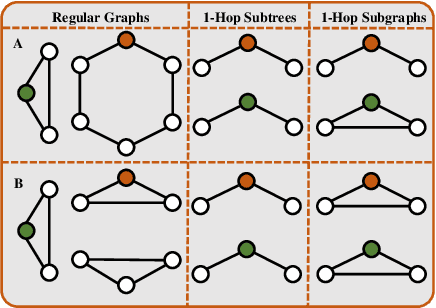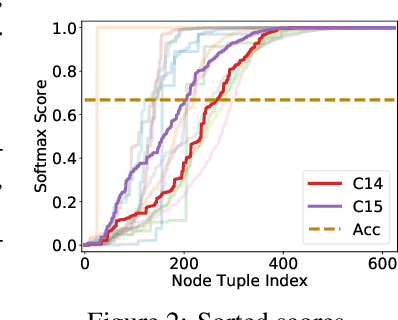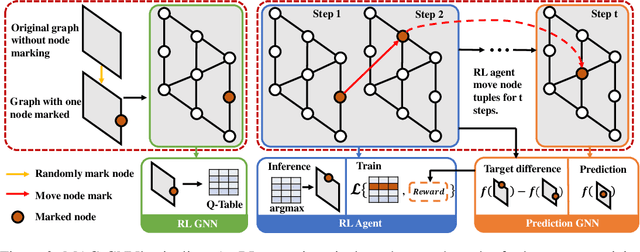MAG-GNN: Reinforcement Learning Boosted Graph Neural Network
Paper and Code
Oct 29, 2023



While Graph Neural Networks (GNNs) recently became powerful tools in graph learning tasks, considerable efforts have been spent on improving GNNs' structural encoding ability. A particular line of work proposed subgraph GNNs that use subgraph information to improve GNNs' expressivity and achieved great success. However, such effectivity sacrifices the efficiency of GNNs by enumerating all possible subgraphs. In this paper, we analyze the necessity of complete subgraph enumeration and show that a model can achieve a comparable level of expressivity by considering a small subset of the subgraphs. We then formulate the identification of the optimal subset as a combinatorial optimization problem and propose Magnetic Graph Neural Network (MAG-GNN), a reinforcement learning (RL) boosted GNN, to solve the problem. Starting with a candidate subgraph set, MAG-GNN employs an RL agent to iteratively update the subgraphs to locate the most expressive set for prediction. This reduces the exponential complexity of subgraph enumeration to the constant complexity of a subgraph search algorithm while keeping good expressivity. We conduct extensive experiments on many datasets, showing that MAG-GNN achieves competitive performance to state-of-the-art methods and even outperforms many subgraph GNNs. We also demonstrate that MAG-GNN effectively reduces the running time of subgraph GNNs.
 Add to Chrome
Add to Chrome Add to Firefox
Add to Firefox Add to Edge
Add to Edge